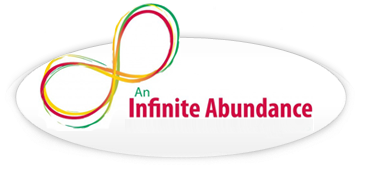Over the next few weeks, we will be discussing how Reiki Energy Healing can benefit specific groups. This week, we start with the elderly.
For the elderly, Reiki can be particularly beneficial as it addresses several age-related concerns. Here are some ways in which Reiki can support the elderly:
Pain Management: As the body ages, it’s common for seniors to experience chronic aches and pain due to conditions like arthritis or the aftermath of injuries and surgeries. Reiki helps to alleviate pain, reduce stiffness in joints, and improve mobility, making daily activities more manageable. It can lead to relaxation and reduced tension, which in turn may decrease pain perception. Addressing the emotional side of pain can help increase pain tolerance and reduce the perception of pain.
Stress Reduction: The golden years often bring about stress due to various life changes, health issues, and the loss of loved ones. Reiki sessions offer a sense of peace and relaxation, helping to lower stress and anxiety levels. It induces a deep state of calmness, helping individuals to unwind and release tension. This relaxation can lead to a decrease in heart rate and blood pressure, fostering a conducive environment for the body to activate its natural healing processes.
Improved Sleep: Many seniors struggle with sleep disturbances. Reiki promotes a state of deep relaxation, which may lead to improved sleep quality and help combat insomnia. The calming nature of Reiki can help quiet the mind, making it easier to fall asleep and stay asleep. By reducing stress and anxiety, which are common culprits behind sleep disturbances, it can create a more conducive environment for rest. It also alleviates physical discomfort, further contributing to improved sleep patterns.
Emotional Well-being: Reiki provides emotional support, enhancing feelings of peace and contentment for the elderly, who often face a multitude of challenges including chronic pain, isolation, and emotional distress. Reiki can offer a soothing presence. It helps manage pain, reduce symptoms of anxiety and depression, and promote a sense of peace and relaxation. These benefits are particularly valuable as they can lead to improved mood, increased optimism, and a better overall emotional balance, which are crucial aspects of life quality in the later years.
Enhanced Recovery: Reiki can speed up the recovery process from surgeries or illnesses by supporting the body’s healing mechanisms. It enhances the body’s response to medical treatments and reduce stress-related complications, potentially improving overall health outcomes. In the postoperative period, Reiki can be beneficial in reducing pain and accelerating recovery, helping the body to heal more efficiently after surgical procedures. By integrating Reiki into the care regimen for the elderly, it’s possible to address both physical and emotional aspects of recovery, providing a holistic approach to health that can greatly enhance the quality of life for older adults.
Increased Vitality: Seniors who receive Reiki often report a boost in energy and vitality. This can be particularly beneficial for those who feel lethargic or have low energy levels due to age-related changes or health conditions. It is known to promote relaxation and reduce stress, which can have a direct impact on improving sleep quality and overall well-being. By alleviating stress and inducing a state of calm, Reiki helps in reducing symptoms of anxiety and depression, common among the elderly due to various life transitions and health concerns.
Mental Clarity: Reiki can rejuvenate mental alertness, helping to clear the mind and improve focus. This is crucial for maintaining cognitive functions and can contribute to a better quality of life. As research suggests, Reiki may offer several benefits in this regard. Studies have indicated that Reiki can help improve memory and behavior in patients with mild cognitive impairment or mild Alzheimer’s disease. In a controlled experiment, participants who received Reiki treatments showed statistically significant improvements in mental functioning compared to those who did not receive Reiki.
Skin Health: Reiki enhances overall well-being and support the body’s natural healing processes and immune system support. It can relieve itchy and dry skin, which are common issues among the elderly, by promoting better circulation and rejuvenating the skin’s appearance. Adding Reiki to a skincare routine may lead to a more youthful and vibrant complexion.
Fall Prevention: By improving muscle tension, coordination, and range of motion, Reiki can also reduce the risk of falls, which are a significant concern for the elderly population. One of the key ways Reiki may aid in fall prevention is through the relaxation of muscle tension. This relaxation can lead to improved circulation and a calmer nervous system, which in turn can enhance overall coordination and stability. By potentially increasing the range of motion in stiff joints and alleviating tight muscles, Reiki could help seniors maintain better control over their movements, reducing the likelihood of falls.
For Individuals Facing The End Of Their Life Journey: Reiki can provide a sense of calm in the midst of emotional turmoil, helping to alleviate anxiety and fear associated with the dying process. The soothing nature of Reiki can also help to minimize the side effects of medications and medical procedures, offering a non-invasive complement to traditional care.
Reiki’s holistic approach to health and well-being makes it an appealing option for the elderly, providing a gentle way to support their physical, emotional, and mental health. With its growing recognition as a beneficial complementary therapy, Reiki could be a valuable addition to the care regimen of seniors seeking a higher quality of life.
See you next week!

